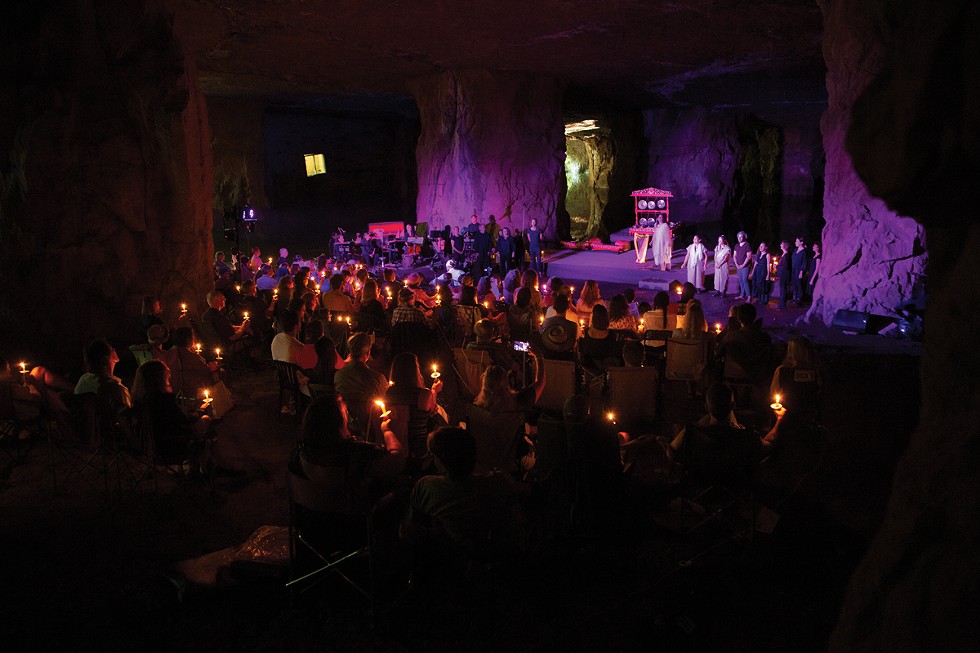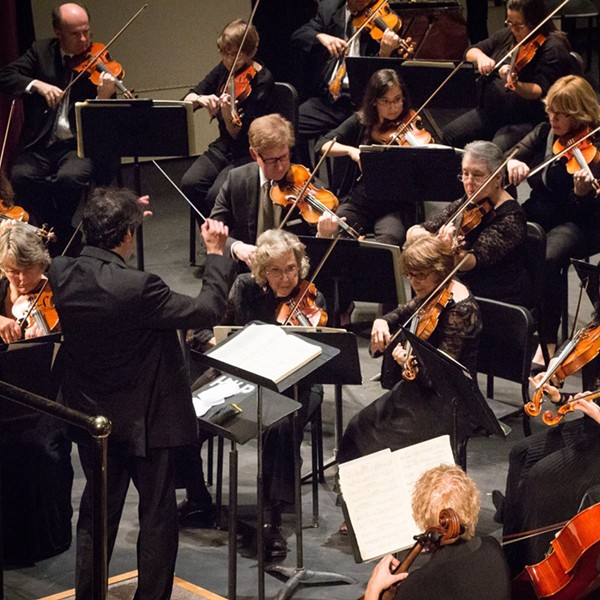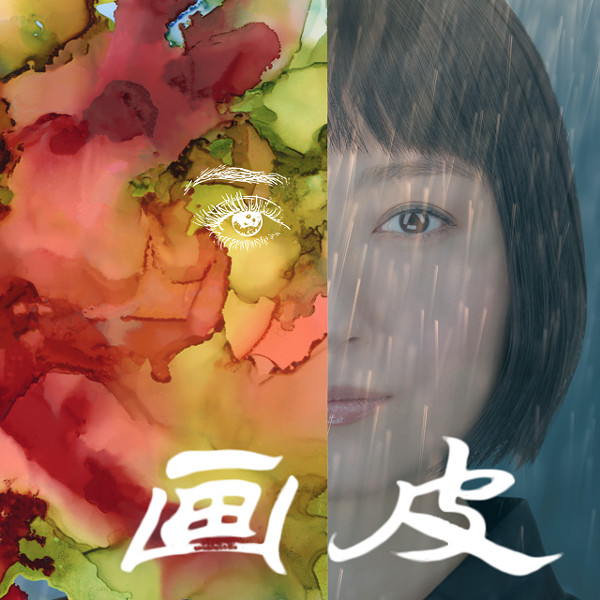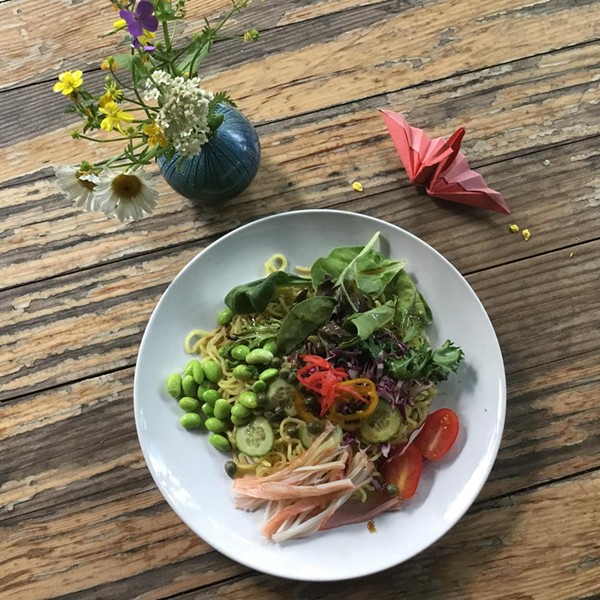On January 24 of this year, the Doomsday Clock was moved forward by the Bulletin of the Atomic Scientists. It's now set at 90 seconds to midnight. What better time to see "Seeds Under Nuclear Winter: An Earth Opera," at the Widow Jane Mine in Rosendale on August 26-27?
Despite the title, Elizabeth Clark's work is not "political," as most people use the word. The endless, futile struggles between left and right have no place in her world. Clark confronts our global crisis without name-calling or outrage. One meaning of "Earth opera" is a performance uniting musical and religious cultures from around the globe. Figures like Hanuman, Green Tara, and St. Margaret of the Parking Lot appear and disappear, to instrumental accompaniment.
And don't let the word "opera" scare you. "Actually, I don't like opera," Clark says, laughing. "Seeds Under Nuclear Winter" displays no soprano virtuosity. "I really appreciate simplicity, sparseness, empty space," she continues. Clark's musical influences include Tori Amos, Philip Glass, Laurie Anderson, and the 12th-century mystic Hildegard of Bingen. For the last seven years, she has taken workshops with the visionary performance artist Meredith Monk. Clark has also traveled to numerous pow-wows with Grandfather Albert of the Mi'qmac tribe, accompanying him on a traditional frame drum.
This is the second year of the opera, but the piece continues to evolve. At the point I'm writing, there will be 35 performers, many with multiple roles. Musicians are also actors; dancers boldly sing. The cast includes three ensembles: Andes Manta, which plays traditional Ecuadorian songs; Catskill Mountain Gamelan; and Mamalama, a sacred music group. Clark plays a double-strung harp, whose tuning is similar to the kora, a West African instrument she has studied. At various points, the audience is invited to participate.
"Seeds Under Nuclear Winter" is a collective undertaking. The intuitive Anne Arden McDonald designed Clark's diaphanous costume. Sharon Penz was the choreographer—and staged the battle between warring monks. Erika McCarthy created the glowing hearts that the divine beings wear. Clark met many of these artisans during her four residencies at the Byrdcliffe Arts Colony in Woodstock. All the performers are local. If the Hudson Valley could sing, it would sing this "Earth opera."
The inspiration for the work was a nightmare Clark had in 2016. Ominous beings in brown robes were floating down a hallway, speaking a language she couldn't understand. As they came closer, Clark felt bone-chilling cold. Then she looked inside their hoods, and saw that they were empty. This was the night before Donald Trump was elected president.
The Widow Jane Mine is the perfect surreal setting for this pageant. Actors appear from behind pillars, or saunter through a stone archway. At one point, a radiant figure—an unnamed female in a long blue veil—arrives in an illuminated canoe, gliding across an interior pool. If the apocalypse comes, many of us may find ourselves living in baroque, chilly caves like this. (This mine produced dolomite for making cement, until it was closed in 1970.)
Clark has lived her whole life in the Hudson Valley. She was born in Wappingers Falls, but at the age of 17 found her way to the Deep Listening Space in Kingston, which was helmed by the experimental accordionist Pauline Oliveros. Clark attended the music conservatory at SUNY Purchase, where she discovered an unused harp in a closet. Already an accomplished pianist, she quickly learned the instrument. Clark began bringing her harp to the nursing home where she worked part-time, playing music to dementia patients. She discovered that, on Earth as in heaven, harp music makes everyone smile.

















